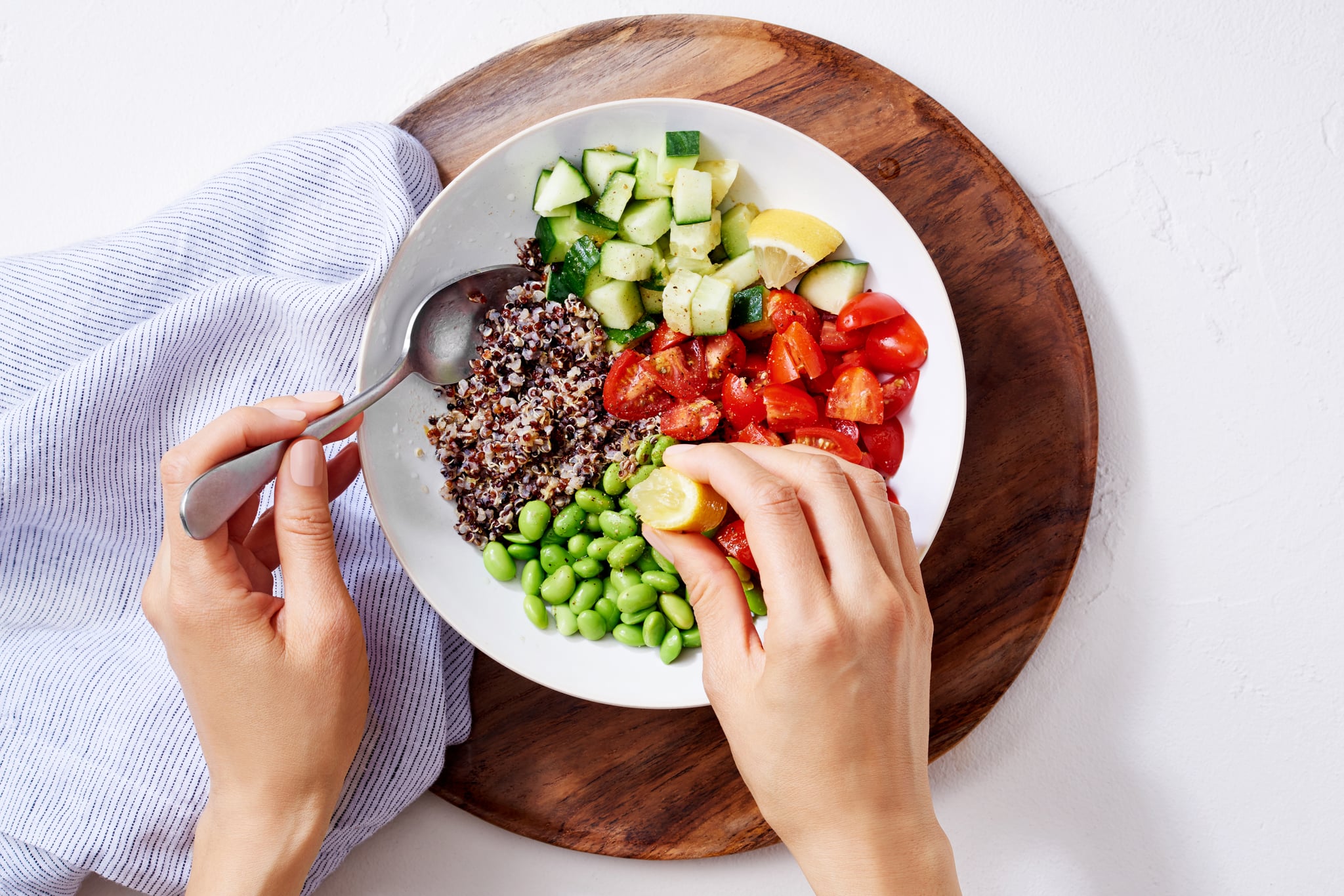What Is the Healthiest Way to Lose Belly Fat?
Those Gruelling Workouts May Not Help You Lose Belly Fat, but Here's What Will

If you're trying to lose weight, you're probably doing it to look and feel good, but shedding belly fat, specifically, can also improve your health. "A woman with a waist measurement greater than 35 inches likely has excess visceral fat," Wendy Scinta, MD, MS, a board-certified bariatric physician and president of the Obesity Medicine Association, told POPSUGAR. This type of fat sits deep within the abdomen, surrounding your organs. "Visceral fat is harmful because it secretes dangerous chemicals that lead to increased inflammation, blood clotting, and other issues," she said.
While you can't choose where you lose weight (that's largely determined by your genetics), Dr. Scinta explained that shedding as little as 5 percent of your body weight should result in you losing visceral fat, too — ultimately reducing blood pressure, glucose levels, cholesterol, and more.
What's the Healthiest and Most Effective Way to Lose Belly Fat?
"Diet is superior simply due to the ease of cutting calories versus burning extra calories through exercise," Spencer Nadolsky, MD, a board-certified family and obesity physician with Renaissance Periodization, told POPSUGAR. Dr. Scinta agreed, noting that research suggests that exercise is only minimally effective in helping women lose weight. However, "exercise is a key component to keeping weight off, so it becomes incredibly important as you get closer to your goal," she said. Focus on your diet first, by increasing your intake of fruits and vegetables and cutting out refined sugars and processed foods. "Then slowly increase your exercise as tolerated for your hunger level (and your level of conditioning) so that you can stay on your nutrition plan," Dr. Scinta said. "Even if you don't lose a pound, you will become healthier with exercise, as you build muscle and convert unhealthy white fat to healthy brown fat."
Remember too to be patient, because you may hit roadblocks along the way. "Having too little sleep and higher stress may cause changes in your cortisol levels, which can lead to a preference of fat stored around the organs," Dr. Nadolsky said. "Lack of sleep and being stressed can also cause you to overeat, which leads to weight gain." Do the best you can to manage stress and get a solid seven to nine hours of sleep each night. When you can't, stick to your diet and exercise routine, anyway.




